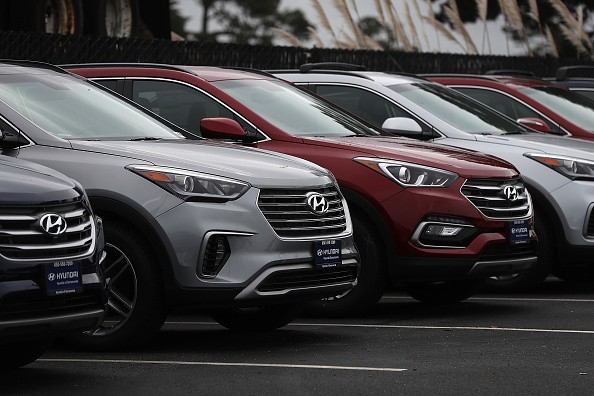Republicans have proposed a bill that could shift the leadership in electric vehicle (EV) manufacturing from the US to China. The bill, part of the Inflation Reduction Act, potentially hinders the advancement of EV manufacturing in the US.

(Photo by Justin Sullivan/Getty Images)
Impacting EV Manufacturing Leadership
Republicans have put forward legislation that could alter the dynamics of electric vehicle (EV) manufacturing, potentially shifting the industry's leadership from the US to China.
The proposed bill seeks to eliminate the EV tax credit, a move that could impede the progress of EV manufacturing within the United States.
In a predictable move, Electrek reported that Republicans, often perceived as adversaries to initiatives supporting American manufacturing and environmental sustainability, have introduced legislation to undermine the benefits outlined in the Inflation Reduction Act.
Named the "ELITE" Vehicles Act, it targets the clean vehicle credit for new, used, and commercial electric vehicles.
Senator John Barrasso, from Wyoming, introduced the act and has received substantial funding from the oil & gas industry, which aligns with his state's economic interests.
Advocates argue that the Inflation Reduction Act credits primarily benefit the wealthy and allow Chinese EVs into the US.
Still, these claims overlook the incentives' focus on lower-income buyers and domestic production requirements.
With increasing exports to global markets, especially in Europe, Chinese EV production and demand are surging. Senator Barrasso's proposed bill would add $7,500 to the price of US-made EVs, potentially making Chinese EVs more appealing to American consumers.
However, contrary to Barrasso's claims, the bill could undermine the US auto industry and worsen local air quality, potentially leading to increased health issues.
This move is widely seen as a political maneuver to appease fossil fuel interests rather than a genuine effort to benefit the public.
The act, sponsored by 19 Republican senators, has been introduced in the Senate but has yet to progress beyond committee or receive a vote. Given the likely veto by President Biden and the upcoming elections in November, its passage into law seems improbable.
Nonetheless, it signals the Republicans' agenda to impact consumer finances, public health, and the auto industry's future, underscoring the party's priorities.
Understanding the Inflation Reduction Act
The Inflation Reduction Act (IRA) includes provisions for electric vehicle tax credits to boost EV adoption and industry growth.
Initially capped at 200,000 vehicles per manufacturer, the IRA removes this restriction, allowing more comprehensive access to incentives.
It ensures immediate credit availability at the point of purchase, benefiting lower-income buyers. However, the IRA mandates domestic EV production and sets income thresholds to prioritize those in need.
Additionally, it introduces a $4,000 tax credit for used EVs, further supporting lower-income individuals.
Despite overcoming limitations and relaxing regulations to aid industry progress, these measures have sparked a resurgence in American auto manufacturing.
Since President Joe Biden's EV initiative, over $210 billion has been invested in new or expanded factory projects, creating approximately 250,000 EV-related jobs.
The IRA represents an unparalleled global climate commitment, with hundreds of billions allocated primarily towards EV-related tax incentives and climate initiatives.
Lastly, the bill's innovative tax reforms ensure it generates more revenue than it costs.
Related Article : How to Get Used EV Tax Credit? IRS Says Up to $4,000 Can be Received; Qualifications, Other Details

ⓒ 2026 TECHTIMES.com All rights reserved. Do not reproduce without permission.




